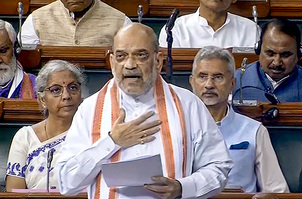Table of Contents

Bharatiya Nyaya Sanhita (BNS) Bill was introduced by Union Home Minister Amit Shah in Lok Sabha on Friday. It will replace the Indian Penal Code (IPC) that has been embedded in our legal system since the year 1860.
According to the provisions of this bill, a person can be imprisoned for 10 years if they attempt to marry a woman by concealing their identities or demand sexual intercourse under the pretext of marrying, promoting or employing the women.
It is happening for the first time that being accused of sexual intercourse with a woman under any of the three false promises will be considered a crime. There is no specific provision for the same in the Indian Penal Code. Shilpi Jain, Senior criminal lawyer, reported that many such cases were not regarded as crimes and were always open to different interpretations due to an absence of such a provision.
This bill was introduced to bring forth the speedy justice for those who might suffer due to such false promises.
The varied degree of punishment to the accused

It is stated in the bill that a crime of rape will lead to a punishment as that of either a minimum of 10 years of jail or imprisonment for life and a crime of gang rape will lead to at least 20 years of imprisonment. A crime involved in murder will lead to a death sentence or life imprisonment or death sentence.
The accused will be rigorously punished if a woman dies after the rape or remains vegetative after the crime. The imprisonment can extend from 20 years to the period of the person’s natural life, i.e., life imprisonment. Similar rigorous punishmesnt will be granted to those who commit the crime of rape on a girl under 12 years of age.
A case where men accused of raping under a false promise has been granted bail
Justice S.K. Panigrahi, Orissa High Court, reported that the existing laws related to rape do not cover the aspect of the false promise of marriage. Section 375 of the IPC defines rape, and the various provisions of this crime under the law do not cover the aspect of consent of sexual intercourse on the false pretext of marriage.
In one case in October last year, Delhi High Court granted bail to a man accused of raping a woman against a false promise of marriage after the court had considered the blogs she wrote and posted online. They had met on Tinder. Her blogs that she wrote and posted online reflected that she had reservations about the idea of marriage and supported the concept of a live-in relationship, which was contradictory to the complaint she had made before the court, where she informed of accepting the promise of marriage made by the accused. The high court gave forth a judgement that the sexual encounter between the accused and the woman appeared to be voluntary.













